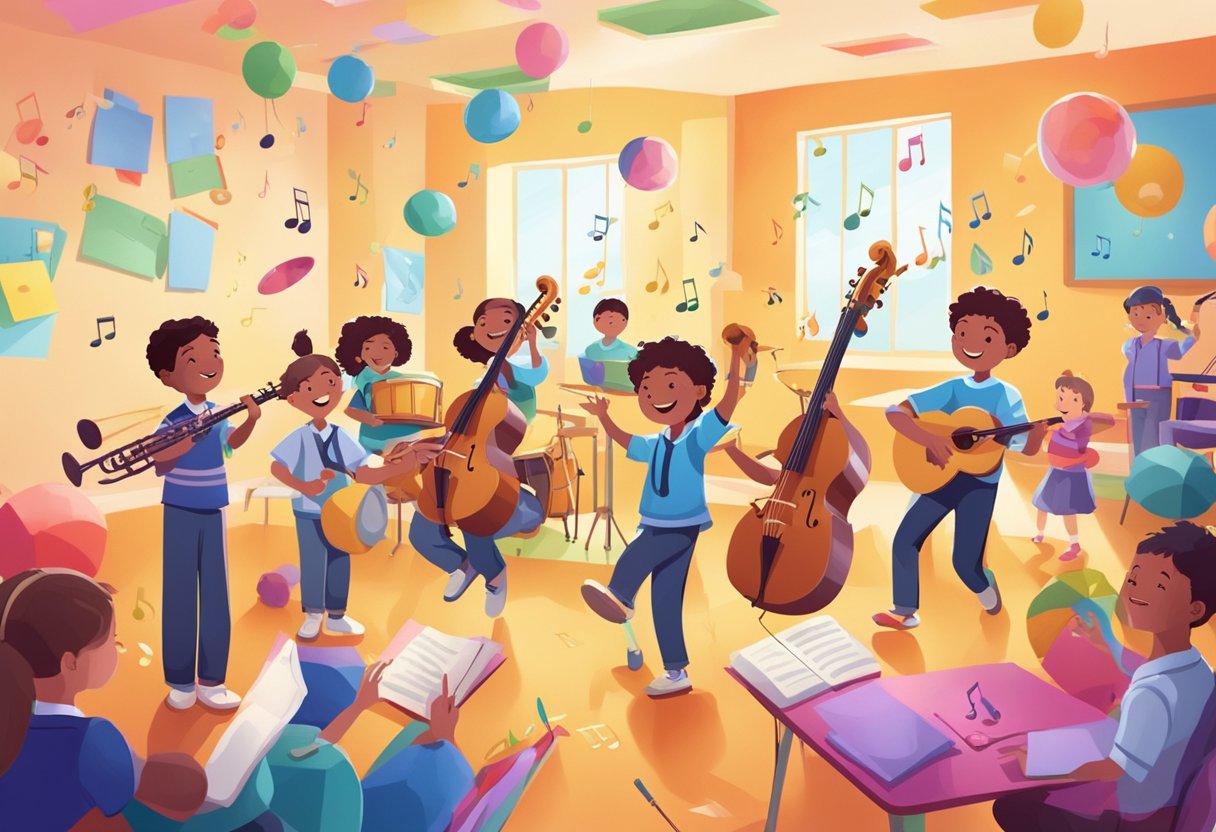Best Kids’ Beginner Instruments: Age-Based Guide

When it comes to introducing children to the world of music, choosing the right instrument can make all the difference. While some instruments may be too complex or difficult for young beginners, others are specifically designed to be easy to learn and play. In this article, we will explore the best beginner instruments for kids by age group, helping parents and educators make informed decisions when selecting an instrument for their child.
For children aged 3-5, it’s important to choose an instrument that is fun and easy to play. Simple percussion instruments like shakers and tambourines are a great choice, as they allow kids to experiment with rhythm and sound without the need for complex fingerings or embouchure techniques. For slightly older children aged 6-8, the options expand to include instruments like the recorder, ukulele, and keyboard. These instruments offer a bit more complexity while being relatively easy to learn, making them a great choice for beginner instruments for kids.
Choosing the Right Instrument
Choosing the right instrument for a child can be a daunting task for parents. It is important to consider the child’s age, physical abilities, and interests when selecting an instrument. In this section, we will provide some guidance on choosing the right instrument for children by age group.
Ages 3-5: Percussion and Keyboard
For children between the ages of 3 and 5, percussion and keyboard instruments are the best beginner instrument options for kids. These instruments are easy to play and require minimal physical coordination. Children can start with simple percussion instruments like tambourines, maracas, and rhythm sticks. They can also try their hands at playing the keyboard with a small-sized keyboard or a toy piano.
Ages 6-8: String and Wind Instruments
Children between the ages of 6 and 8 can start exploring string and wind instruments. These instruments require more physical coordination and breath control. String instruments like the violin and cello are great options for children in this age group. Wind instruments like the recorder, clarinet, and flute are also good choices.
Ages 9-12: Brass and More Complex Instruments
Children between the ages of 9 and 12 can start playing more complex instruments like brass instruments and larger string instruments. The trumpet, trombone, and French horn are good options for children who want to play brass instruments. For those interested in larger string instruments, the double bass or the harp are great options.
When choosing an instrument, it is important to keep in mind that each child is different. Some children may take to an instrument quickly while others may need more time to learn. Parents should encourage their children to practice regularly and provide them with the necessary resources to succeed. By choosing the right instrument and providing the right support, parents can help their children develop a lifelong love of music.
Benefits of Early Music Education
Music education has been shown to have numerous benefits for children, including cognitive development, motor skills enhancement, social skills, and patience.
Cognitive Development
Studies have shown that learning music can have a positive impact on a child’s cognitive development. Music education can improve memory, attention, and language skills. Learning to read music requires both hemispheres of the brain, which can help improve overall brain function.
Motor Skills Enhancement
Learning to play an instrument requires fine motor skills, which can help improve a child’s overall motor skills. Playing an instrument requires coordination between the hands, fingers, and sometimes even the feet. This can help improve a child’s dexterity and hand-eye coordination.
Social Skills and Patience
Playing an instrument can also help improve a child’s social skills and patience. Learning to play with others in a group setting requires communication skills, teamwork, and patience. It can also help improve a child’s self-confidence and self-esteem.
Overall, early music education can have a positive impact on a child’s development and well-being. It is a fun and engaging way for children to learn new skills and express themselves creatively.
Practical Considerations
When choosing a beginner instrument for kids, there are several practical considerations to keep in mind. Here are some important factors to consider when selecting an instrument for your child:
Instrument Size and Child’s Comfort
It’s important to choose an instrument that is appropriate for your child’s age and size. A small child will have difficulty playing a large instrument, and a large child may find a small instrument uncomfortable to play. Be sure to choose an instrument that is the appropriate size for your child, and that they feel comfortable playing.
Maintenance and Durability
Beginner instruments can take a lot of wear and tear, so it’s important to choose an instrument that is durable and easy to maintain. Look for instruments made of high-quality materials that can withstand frequent use. Additionally, consider the cost of repairs and maintenance when choosing an instrument.
Budget and Rental Options
Buying a new instrument can be expensive, especially if you’re not sure if your child will stick with it. Consider renting an instrument to start, or look for used instruments that are still in good condition. This can be a cost-effective way to get your child started with a new instrument without breaking the bank.
Overall, choosing a beginner instrument for kids requires careful consideration of several factors. By taking the time to choose the right instrument, you can help your child develop a lifelong love of music.

